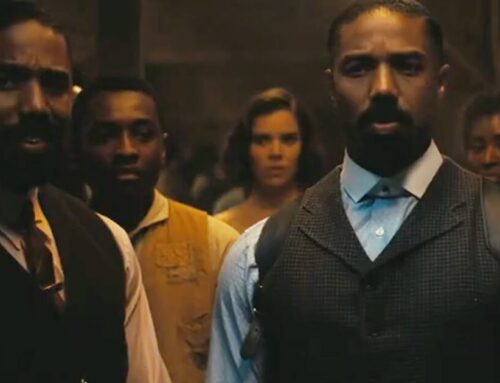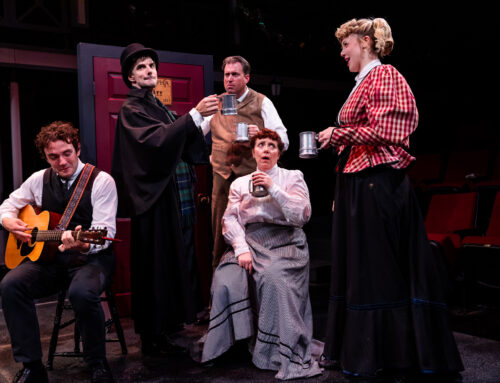I sat down to watch EXTREMELY LOUD AND INCREDIBLY CLOSE. Make that “Extremely Tedious and Incredibly Morose.” I had to stop after 20 minutes. I tried again, got through it, but found the film deeply off-putting. It features one of the most annoying kid’s performances ever, and one of the most sentimentally oblique plot lines in recent memory. Based on the book by Jonathan Safran Foer and directed by Stephen Daldry who directed two other movies I didn’t like (THE READER, THE HOURS) I am struck by what “EXTREMELY LOUD” has in common with these films: it’s pretentious, “arty,” and attempts to disguise without succeeding, its fundamental sentimentality. “EXTREMELY LOUD” is guilty on all counts.
The film opens with an evocative shot of what we come to understand is a body, falling from one of the Twin Towers on 9/11. The film is about that lost man (Tom Hanks) and his family– wife (Sandra Bullock) and particularly his 9 year-old son (Thomas Horn), who finds a key his late father left behind, and spends the film trying to find the lock that it fits. This journey takes him all over Manhattan; he fears riding the subway, so he walks and rings doorbells and talks–incessantly– to strangers, who utterly embrace him. This kid is incredibly annoying. Then we find out he has Asperger’s (a form of autism) and we are placated, somewhat. It’s a very convenient syndrome to explain this kid’s laser focus, inexplicable rudeness, and ability to “see things” differently from everyone else.
The boy ends up encountering all manner of people with missing locks and keys–metaphorically speaking– most of them fathers and sons who have unfinished business. Enter Viola Davis who makes this kid a cup of hot chocolate (or some such comforting beverage) to his exacting specifications within minutes of meeting him, and Max Von Sydow as a mysterious, mute cohort who decides to join him on this loopy odyssey. I was expecting some big sappy ending with all the questions answered; no such luck. What happens is infinitely more irritating. None of the literal questions are actually answered–not the Viola Davis connection, not the Max Von Sydow quest, not completely. No, we’re all left to assemble the vague poetic leavings Daldry has scattered before us as part of this fatuously contrived puzzle with “no easy answers,” and which relies on the morbid resonance of a real tragedy. It feels unseemly.
There is one really good thing here, and that is Sandra Bullock’s performance as a wife who suddenly has her husband ripped from her life, and a mother who must face the pain of her lost young son alone. Wordless, she wears the tragedy on her stricken face. I am not a cynic, and this movie has less to do with what happened on 9/11 than it does with an indulgent filmmaker who has a tin ear for authenticity. I look forward to the movies that will surely be made to help us glean what we can from the impossibly horrifying cataclysm of that day.






Leave A Comment
You must be logged in to post a comment.